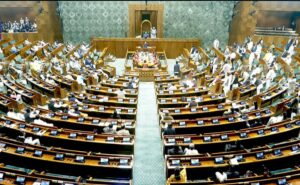Steve Wynn Can’t Be Forced to Register as Foreign Agent, Judge Rules

WASHINGTON—A federal judge dismissed a Justice Department lawsuit seeking to force casino mogul
Steve Wynn
to register as a lobbyist for his 2017 efforts to obtain a diplomatic favor sought by Chinese authorities, saying the government doesn’t have the power to retroactively compel such a disclosure.
Describing his decision as a close call, U.S. District Judge
James Boasberg
wrote in a Wednesday order that longstanding court precedent bars the Justice Department from requiring foreign agents to retroactively register once they are no longer doing the work in question.
The Justice Department’s lawsuit, brought in May, marked a rare civil-court battle over the Foreign Agents Registration Act, which doesn’t provide for civil penalties but gives the department the ability to seek a court order to force someone to comply.
The judge’s order represents a setback to the Justice Department’s stepped-up efforts in recent years to police compliance with the FARA, which requires people who talk to U.S. government officials or the media on behalf of foreign officials to register that relationship. The civil suit against Mr. Wynn was the first of its kind in more than 30 years, authorities said at the time, holding the case up as an example of the Justice Department’s efforts to ramp up enforcement of the World War II-era statute.
“While the goals of FARA are laudable, this Court is bound to apply the statute as interpreted by the D.C. Circuit. And that requires dismissal,” Judge Boasberg wrote in his 20-page opinion. He didn’t say whether he had concluded that Mr. Wynn had been acting as a foreign agent, only that he agreed with Mr. Wynn’s lawyers that the government couldn’t force him to register because his relationship with Beijing ended in 2017.
“We are delighted that the District Court today dismissed the government’s ill-conceived lawsuit against Steve Wynn,” his lawyers, Reid Weingarten and Robert Luskin, said in a written statement. “Mr. Wynn never acted as an agent of the Chinese government and never lobbied on its behalf. This is a claim that should never have been filed, and the Court agreed.”
A Justice Department spokesman said the agency disagreed with the ruling and “is considering options in the litigation and more generally.”
Judge Boasberg wrote in his ruling that the government’s aim to compel Mr. Wynn to disclose any ties to a foreign government is “plainly consistent with the central goal of FARA,” adding that even agents who no longer maintain such ties “are still in possession of information that [FARA] says the public needs.”
The dispute relates to Mr. Wynn’s alleged efforts in the summer of 2017 to persuade U.S. officials to send back to China a Chinese businessman in New York,
Guo Wengui,
whom Chinese authorities consider a fugitive. Mr. Guo has been accused of a range of criminal offenses, from bribery to sexual assault, all of which he has denied.
The Justice Department said in its lawsuit that Mr. Wynn contacted then-President
and members of his administration about the favor in 2017, to protect his then-business interests in Macau, China’s gambling hub.
Mr. Wynn, a 79-year-old billionaire and friend and informal adviser to Mr. Trump, is widely viewed as the architect of the modern Las Vegas Strip lined with luxury resorts. He resigned as chairman and chief executive of
Wynn Resorts Ltd.
in 2018 after The Wall Street Journal published an article detailing allegations of sexual misconduct by Mr. Wynn toward employees. He has said the idea that he ever assaulted any woman is preposterous.
In 2020, two of Mr. Wynn’s associates admitted in plea agreements with the Justice Department that in June and July 2017, they had discussed Mr. Guo’s removal with Mr. Wynn and helped facilitate calls between Mr. Wynn and a Chinese government official about Beijing’s desire for Mr. Guo’s removal from the U.S.
One of the associates,
Elliott Broidy,
also said that he was with Mr. Wynn on Mr. Wynn’s yacht in August 2017 when Mr. Wynn called Mr. Trump to ask about Mr. Guo’s status in the U.S. Mr. Broidy pleaded guilty to conspiring to violate the foreign-lobbying law in connection with that and other work, but was pardoned by Mr. Trump on his final day in office.
The Justice Department said in the lawsuit that Mr. Wynn discussed Mr. Guo with Mr. Trump at a dinner in June 2017, saying Chinese officials wanted him returned. After that dinner, Mr. Broidy texted a message to Mr. Wynn saying that a Chinese official was “extremely pleased and said that President
Xi Jinping
appreciates” Mr. Wynn’s assistance.
—Aruna Viswanatha contributed to this article.
Write to Sadie Gurman at sadie.gurman@wsj.com
Copyright ©2022 Dow Jones & Company, Inc. All Rights Reserved. 87990cbe856818d5eddac44c7b1cdeb8









